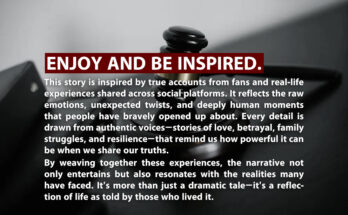I’m Daniel, and I grew up in a house where love was conditional and neglect was routine. My parents rarely showed up—at school events, birthdays, or even dinner. I raised myself while they chased their own interests. Now, decades later, they’ve come knocking, asking me to support them financially. “You’re our son,” they said. “It’s your duty.” But I’m not their retirement plan. I built my life without their help—every scholarship, every promotion, every dollar earned. Saying no wasn’t easy. But it was necessary. Because love isn’t a transaction, and I won’t pay for the care I never received.
When I was ten, I broke my arm. My neighbor drove me to the hospital because my parents were “too busy.” At sixteen, I worked two jobs to afford college prep. They never asked how I was doing. Now they expect me to fund their retirement? I asked them one question: “Why now?” Their answer? “Because you’re successful.” That stung. Not because it was true—but because it confirmed what I’d always feared: they only saw me as a resource. I realized then that I wasn’t rejecting them—I was protecting myself. And that changed everything.
I offered alternatives—government assistance, financial planning, even part-time work. They scoffed. “You owe us,” my father said. “We gave you life.” But giving life isn’t the same as giving love. I told them, “You gave me existence. I gave myself everything else.” My mother cried. My father cursed. I walked away. It wasn’t revenge—it was release. I’d carried guilt for years, wondering if I was ungrateful. But now I saw the truth: boundaries aren’t betrayal. They’re survival. And I was finally choosing mine.
Weeks passed. They sent messages—some pleading, some angry. I didn’t respond. Instead, I focused on my own family. My wife, my kids, my peace. I poured into them what I never received. And every time I tucked my son in or helped my daughter with homework, I reminded myself: this is how love should feel. Not demanded. Not conditional. Just present. I wasn’t repeating history—I was rewriting it. And that gave me strength.
One day, my sister called. “They’re struggling,” she said. “Can’t you help?” I asked, “Did they ever help me?” She was silent. I told her I’d donate to a local elder care fund—but not directly to them. “I’m not cruel,” I said. “I’m just done being used.” She understood. And for the first time, I felt peace. Not because I’d won—but because I’d finally stopped losing myself to guilt. I chose clarity over obligation. And I don’t regret it.
So here’s what I’ve learned: family isn’t defined by blood—it’s defined by behavior. I refused to support my parents after years of neglect, and it was the hardest, healthiest decision I’ve ever made. I’m not their retirement plan. I’m a man who survived, thrived, and chose love on his own terms. And that choice? It saved me.


